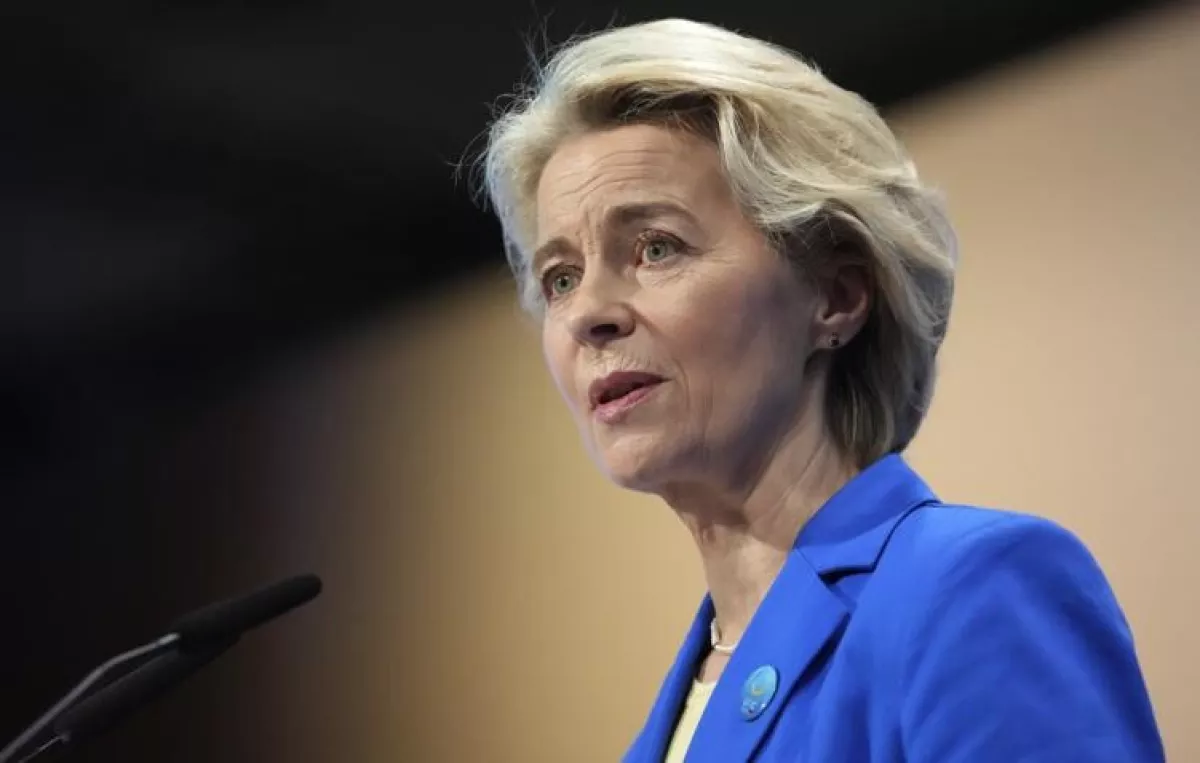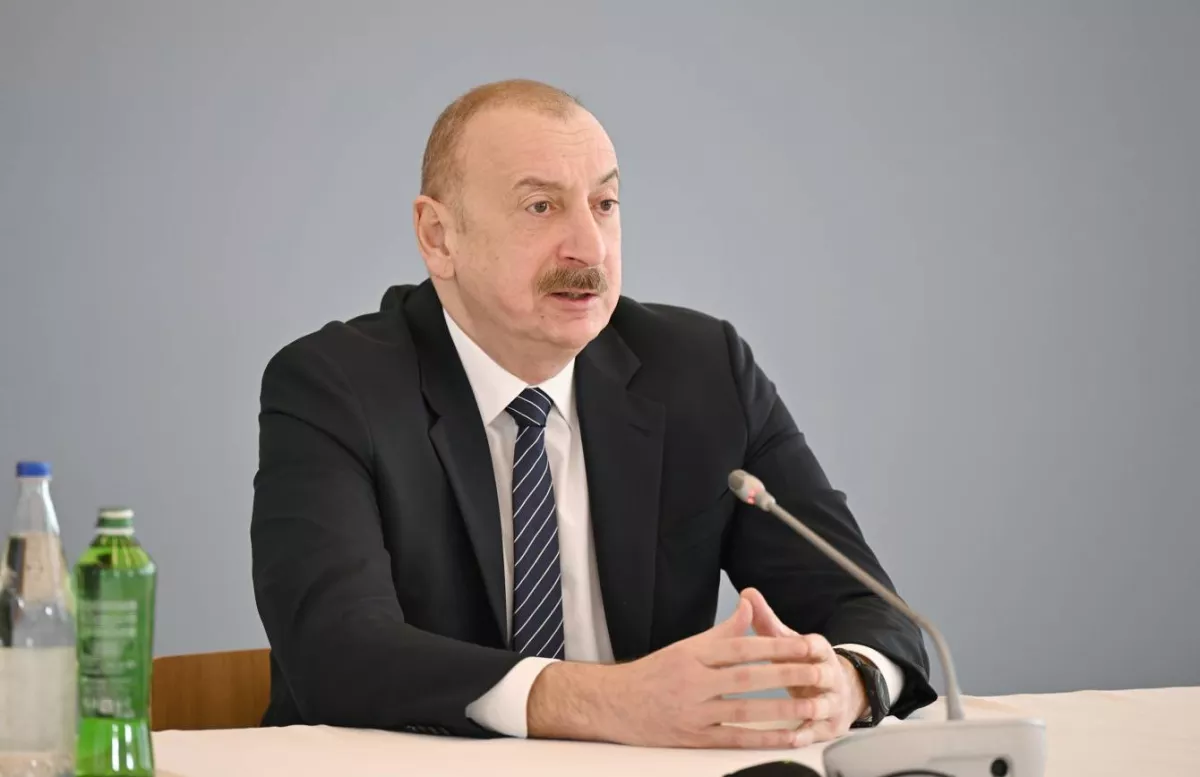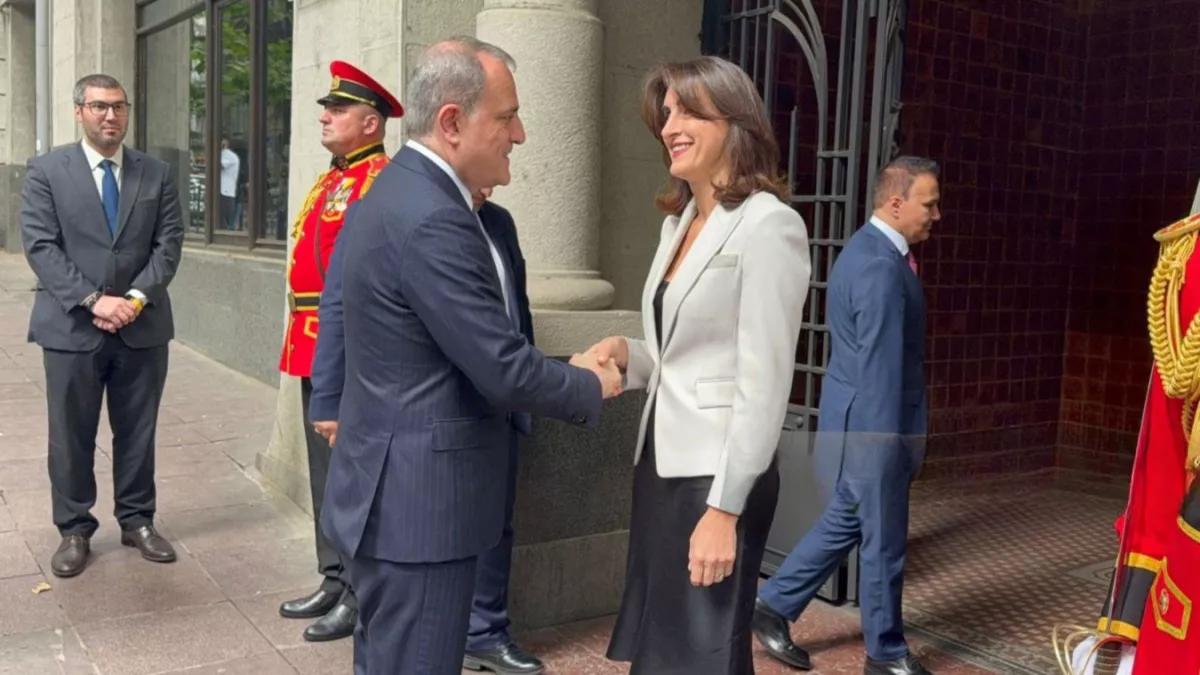Azerbaijan backs Georgia amid EU pressure Tbilisi stands firm
The visit of Azerbaijani Foreign Minister Jeyhun Bayramov to Georgia on July 22, 2025, took place during a challenging period for the entire South Caucasus region. The peace process between Azerbaijan and Armenia, including the issue of opening the Zangezur Corridor, has finally moved forward. However, at the same time, pressure on Georgia from the European Union has intensified. Brussels is issuing unacceptable ultimatums to the Georgian leadership, even threatening to revoke the visa-free regime.
Provocative claims are being spread through media resources linked to the pro-Western opposition, suggesting that the opening of the Zangezur Corridor will supposedly "leave Georgia sidelined from the transit route" between Asia and Europe, based on the notion that the current government has allegedly "returned the country to Russia’s orbit."

These narratives echo the stance of European Commission President Ursula von der Leyen, who at a summit of Central Asian leaders in early April 2025 promoted a transit route through Armenia—without mentioning Georgia.

In response, on April 9, 2025, at the international forum “Facing the New World Order” held at ADA University, Azerbaijani President Ilham Aliyev made his position clear:
“Frankly speaking, I was surprised when I was informed about the comments of the President of the European Commission, Madame Ursula Von Der Leyen, which she made in Uzbekistan, at the Summit of Central Asian leaders…That was very strange, because this corridor exists, and Armenia plays no role in that…But there was not a single word about Georgia. As if Georgia did not exist. This is unfair, and the attitude towards Georgia's internal process in the European Commission is absolutely unacceptable. This is the behavior of colonialists. They try to look at the will of the Georgian people through the principles of a colonial past. This is absolutely unacceptable, and the people of Georgia know that we are with them, and the government of Georgia knows. The internal issues of Georgia must be resolved by the Georgian people, not by bureaucrats from Brussels. So, with respect to all that, we need to strengthen our partnership between Georgia and Azerbaijan.”
Today, the pro-Western opposition and their backers in the EU are once again trying to use even positive developments—such as the peace process and the opening of the Zangezur Corridor—as tools to destabilise the internal situation in Georgia. In this context, Azerbaijan’s support for Tbilisi’s sovereign policies takes on particular significance.

This support was clearly reflected in the Azerbaijani Foreign Minister’s visit to Tbilisi. Jeyhun Bayramov held talks with Georgian Foreign Minister Maka Bochorishvili, President Mikheil Kavelashvili, Prime Minister Irakli Kobakhidze, and Speaker of Parliament Shalva Papuashvili.
During his meeting with the Georgian Foreign Minister, Bayramov emphasised that the 2024 parliamentary elections in Georgia were held “very successfully,” and that close relations had been established between the leaders of the two countries. In doing so, Baku made it clear that it does not share the position of certain European politicians and the Georgian opposition who question the legitimacy of the elections.
The self-proclaimed French pensioner Salome Zourabichvili may be considered “President of Georgia” in Paris or Brussels—but not in Baku.
For her part, Maka Botchorishvili stated: “We have always said and will say again: Georgia is genuinely interested in strengthening peace and stability in our region. We are pleased that on April 17, we had the opportunity to hold a trilateral meeting. It was the first meeting of its kind, with deputy ministers from all three countries gathered in Tbilisi to discuss regional issues. We believe there is real potential for continued cooperation among the three countries in this format. … The current geopolitical situation can be seen as a certain opportunity—in the interests of both Georgia and Azerbaijan…”
The two sides also discussed economic cooperation, including transit. Bayramov noted: “We spoke about the initial economic results for 2024–2025. The figures for the first five months of 2025 exceeded $330 million—almost 20% higher compared to the same period last year… Azerbaijan is one of the main investors in Georgia, with total investments amounting to $3.6 billion… I would highlight several key projects: the Baku–Tbilisi–Ceyhan oil pipeline, the Southern Gas Corridor, and the Baku–Tbilisi–Kars railway… These projects are the result of years of successful cooperation that, without a doubt, will continue for decades to come.”

He also mentioned joint efforts in the field of green energy: “In the area of alternative energy, it is important to utilise green resources delivered from Azerbaijan through the territory of Georgia and the Black Sea to the European market… As part of this project, Georgia and Azerbaijan are actively cooperating with a number of European countries, as well as with Türkiye… Uzbekistan and Kazakhstan have also expressed interest in participating in the project by leveraging their potential in alternative energy. Relevant steps have already been initiated.”
During the meeting with Prime Minister Irakli Kobakhidze, the sides discussed the regional situation, joint infrastructure and energy projects, the development of the Middle Corridor, and the growth of mutual trade. Georgia confirmed its readiness to contribute to the peace process in the South Caucasus.
Thus, Jeyhun Bayramov’s visit to Tbilisi highlighted the deepening of the strategic partnership between Azerbaijan and Georgia. The development of the Middle Corridor and the progress in the peace process between Baku and Yerevan are further strengthening this alliance. Georgia, in turn, is prepared to play an active mediating role—an important factor in countering the interference of external geopolitical players.
By Vladimir Tskhvediani, Georgia, exclusively for Caliber.Az








